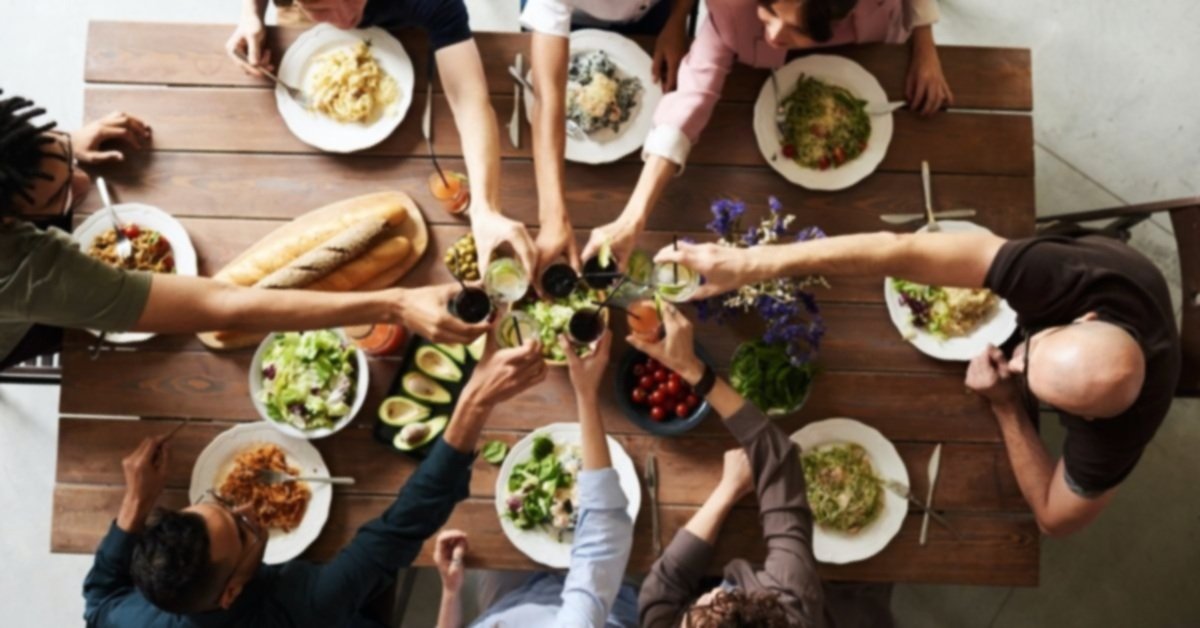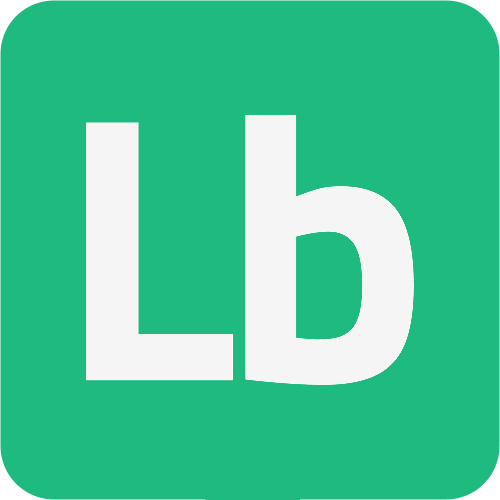
Change Your Relationship with Alcohol
Make Drinking a Choice, not a Habit or Need
Demanding, abstinence-only treatment isn’t the only way. Supported by our proven, medication-backed online program, you’ll stop drinking or cut back effortlessly, reclaiming time for what’s really important.
“I had a great experience with LifeBac not only did it help reduce cravings I was able to go beyond my original goal which was to drink moderately to completely quit drinking altogether.”
— HB
Why LifeBac?
-

Private
Total privacy through our HIPAA-approved in-app telemedicine. It’s just you, your provider, and your phone. Medication is delivered directly to your door in discreet packaging.
-

Effective
On average, LifeBac clients see a 50% reduction in drinking by month 3, and a staggering 82% after 6 months. Clinical studies show 92% efficacy in significantly reducing cravings. This could be the year to make some serious progress!
-

Empowering
You are in control. Set your own goals at your own pace. Enjoy unlimited access to our vast array of tools, online support group, and LifeBac guides to help you shape your own journey.
“This program helped me get control of my life. Alcohol no longer controls me. I choose when and how much I drink instead of the mindless consumption that I indulged in for years.”
— Becky
Getting started is as easy as 1-2-3
1
Complete Sign Up Process
Once you’ve finished your intake form, you’ll have booked your initial consultation with a LifeBac provider. The provider will prescribe craving-fighting medication to work alongside our online program.
2
View Your Custom Plan
Once approved, you’ll be able to access your custom medication plan through the LifeBac mobile app or web portal. In just 3-5 days, your medication will be at your door!
3
Meet Your LifeBac Guide
While you await your first delivery, your LifeBac Guide will reach out to introduce themselves, fully activate your account, and begin coaching you through our program at your own pace.
Drink Less, or Not At All – It’s Your Choice!
Better Sleep
Improved Health and Fitness
Stronger, More Meaningful Relationships
Increased Focus and Productivity
Save Money
"Nothing else worked before, and this program did. All that matters is the final result, and I am happy"
— DR
The LifeBac program includes all the support and tools to ensure that you have the best chance at achieving success!
Unlimited medical provider appointments
Meet with a licensed medical provider to adjust your medication plan as many times as you need, for no additional cost per appointment.Prescription medication delivered monthly
Prescription medication is delivered to your door in discrete packaging every month. We adjust the amount sent based on your medication plan so you will always have the required amount.Unlimited coaching appointments
You'll be matched with a LifeBac coach specialized in guiding people through the LifeBac program. Our coaches will provide one-on-one support to empower you to change your drinking habits. We recommend a weekly appointment initially and reduce or increase depending on your needs.In-app drink and medication management
Access to an anonymous 24/7 community forum
Or click here to learn more about our accreditations
“Frankly, I had my doubts. … Now I'm six months in, 45 pounds lighter. I'm up here at 11,000 plus feet. Wouldn't be up here six months ago. … I think it's definitely worth a shot. It's changed my life!
- Scott
Adi Jaffe, Ph.D. writes in The Abstinence Myth that problem-drinking is a symptom of a larger issue. Drinking helps take the edge off, but leaves unresolved issues behind. As those stack up, the drinking does too.
How the medication works
Alcohol cravings are caused by a complex combination of psychological factors, many of which we’re only just beginning to understand, but let’s go over what we do know:
When a person drinks, the alcohol consumed triggers the brain’s reward system directly, despite not having done anything actually fulfilling. This creates the fuzzy feeling you often get after your first drink. Over time, though, continued consumption of alcohol accustoms the body to its mind-altering effects, changing the way your brain communicates with itself even when you’re sober. If this altered brain circuitry goes too long without the alcohol it’s used to, it triggers strong, often uncontrollable urges to drink in order to get it back.
These cravings are subconscious, meaning you don’t have to actively think about alcohol in order for an urge to be triggered. When a person with advanced Alcohol Use Disorder (AUD) sees a liquor bottle or drink commercial, their brain will process that image, realize it represents alcohol, and trigger a subconscious craving before you even have time to process what you’re seeing. This subconscious craving-reward cycle makes drinking habits remarkably tough to fight. At LifeBac, we combine an individually-tailored plan, 1-on-1 personal guidance, and community support with craving-fighting medications that can interrupt this cycle with ease.
Baclofen
Baclofen is the front-line treatment for Alcohol Use Disorder (AUD) in France and Australia, and is rapidly catching on in the rest of the western world. It is an analog of GABA, an essential neurotransmitter, and thus binds to GABA receptors in the brain. It has been shown to suppress cravings for alcohol in regular excessive drinkers, reduce anxiety (a very common issue among problem-drinkers), and ease alcohol withdrawal symptoms.
The Ameisen Method
The most effective method of baclofen treatment for AUD is the Ameisen method: start at a very low dose (5-10mg) and steadily increase. At a certain point, which is different for everybody and unpredictable at the start of treatment, you will feel totally indifferent to alcohol; cues that would have immediately ignited cravings in the past simply don’t anymore, and the brain no longer craves alcohol regularly. This is called the effective dose.
Proven Success
In clinical studies, baclofen has been shown to remove or strongly suppress cravings for alcohol in 92% of studied individuals, with a 62% success rate in returning treatment-resistant alcoholics to low- or medium-risk drinking. Thirty percent chose to achieve complete abstinence inside of two years. These studies focused solely on long-term, alcohol-dependent patients, though; the less the person previously drank and the shorter the time, the less medication and time required.
The program and the medication seems to have made me know the difference between a couple of beers and a few to many beers! I am really glad that I did this for myself and my family!
— Chester
Women & Alcohol Use
From 2002 to 2013, AUD increased by 83.7% among women in the US (NIAAA). In younger age groups, women already drink significantly more than men, and it's having an increasingly visible effect on their health. 1 in 6 women admit to driving drunk in the past year, and 70% consistently drink at unsafe levels according to the according to the WHO. A 2018 study found a steep overall rise in the number of alcohol-related ER visits between 2006 and 2014, but the increase was notably greater for women than men.
As a society, we often assume over-drinking to be a mostly male issue; up until 1961, women in Illinois were legally allowed to buy alcohol at 18 instead of 21, because it was believed that female drinking was never a problem. It's time to abandon these antiquated assumptions and face the truth: women are suffering from this now more than ever, and must be supported.
Anxiety & Drinking
Anxiety and Alcohol Use Disorder influence and maintain each other in a positive feedback loop. Anxiety often pushes people to drink, and excessive drinking is known to significantly increase anxiety, maintaining and worsening both issues in a "vicious cycle of comorbidity" (NIH: Anxiety and Alcohol Use Disorders).
"Hangxiety" is the term coined for the rush of strong anxiety that comes on after a heavy drinking session, often late at night, interrupting sleep and further reinforcing the loop. Baclofen is also used as an anxiolytic (a drug used to reduce anxiety). It works directly on the brain's reward pathways to reduce urges to drink alongside general anxiety, helping to reverse the cycle.
Drinking Mindfully
When processes are repeated for years or decades, the habit is tightly wound, it is possible to unwind the habit loop using mindfulness. Practicing mindfulness allows you to step back and see what is happening inside your mind and take action to step in and break the loop.
“Habits can be described as automatic behavioral loops, involving triggers, behaviors, and rewards. For example, one may feel stressed (trigger), take a drink or two (behavior), and feel better (reward). When you attain (and, later, anticipate) the reward, your brain releases dopamine in a neural process that lays down a memory of that behavior and helps you learn to execute that behavior next time to attain the reward.” Judson Brewer, Ph.D.
30 Million Americans see the cure as worse than the disease
Drug & Alcohol treatment programs have hardly changed since the 1950’s; the medical profession and Alcoholics Anonymous deemed alcoholism a disease, assuming that certain people are innately prone to alcoholism, and taking responsibility away from the addict in the hope that more people would seek treatment. The National Institute on Alcohol Abuse and Alcoholism (NIAAA) defines Alcohol Use Disorder (AUD) as a “chronic relapsing brain disease”.
90% of people who want to cut back their drinking won't seek help to avoid being labelled an alcoholic, bundled into the antiquated and extreme alcohol treatment system, and forced to quit.
The Problem with the Disease Model and 12-Step
Lance Dodes, M.D., former Director of Harvard-McLean’s Substance Abuse Treatment Unit, says alcoholism isn’t a disease, but a symptom of larger issues in the person’s life. It's a compulsion, like gambling, and needs to be treated that way:
“I've probably treated a couple of thousand people who have one addiction or another. Almost all residential treatment programs in the United States are 12-Step-based… and the statistics for AA are not good. It is helpful for 5‒10%, and that's a good thing… it's a lot better than zero percent — but it shouldn't be thought of as the standard of treatment because it fails for most people — for the vast majority of people.”
The Disease Model can even be harmful
The Disease Model of Alcohol Use Disorder, and the organizations that employ it for treatment, force those looking for help to label themselves “alcoholics” for life, creating undue shame and stigma around seeking help when most people who over-drink aren't hardened alcoholics and simply want to drink less.
It takes the individual’s power to decide to change away, then the 90%+ who fail treatment have not only been convinced that they’re powerless to change their own ways, but that they can’t ever succeed. This destroys their self-worth and pushes them further towards the solace of alcohol. The disease model convinces its victims that they have a chronic disease, leading many to believe that they will never be free, when, in reality, most excessive drinkers can make it out.
What people are saying
“Keep with the program because it is a miracle! I was with the program for just over a year before I comfortable with leaving. Stick with even with your slip ups.”
— RB
“I was highly skeptical at first and even while starting and building up the dosage but then suddenly it all started working and it changed everything. Highly impressed and so glad I did the program”
— JS
“This program helped me get control of my life. Alcohol no longer controls me. I choose when and how much I drink instead of the mindless consumption that I indulged in for years. ”
— Becky













